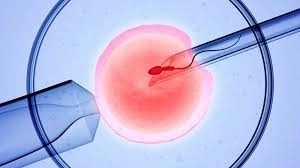
IUI or ICSI: When Should You Choose Each Insights from Dr. Shaimaa Aqil
Published on: 2025-06-22 | Written by: Clinics of Dr. Shaima Aqil, Consultant of Obstetrics, Gynecology, IVF and Endoscopy
With rapid advances in assisted reproductive technologies, many couples find it difficult to choose between intrauterine insemination (IUI) and intracytoplasmic sperm injection (ICSI). Dr. Shaimaa Aqil, Consultant in Obstetrics, Gynecology, and IVF, offers a clear comparison and guidance to help you select the most suitable option based on your medical condition and test results.
What is IUI?
IUI involves directly inserting sperm into the uterus during ovulation. It’s often recommended in cases like:
-
Unexplained infertility
-
Mild sperm abnormalities
-
Cervical mucus issues
-
Couples seeking a less invasive and lower-cost option
What is ICSI?
ICSI involves injecting a single sperm directly into a mature egg in the lab, followed by embryo transfer into the uterus. According to Shaimaa Aqil, ICSI is preferred in cases such as:
-
Failed IUI attempts
-
Blocked fallopian tubes
-
Severe male infertility
-
Advanced maternal age
-
Recurrent miscarriage or failed IVF cycles
Comparison Table
| Feature | IUI | ICSI |
|---|---|---|
| Medical Intervention | Minimal | Highly technical and precise |
| Cost | Lower | Relatively higher |
| Success Rate | Around 10–20% | Up to 60% or more |
| Ideal for | Simple fertility issues | Complex infertility cases |
Advice from Shaimaa Aqil
Choosing the right procedure depends on thorough medical evaluation, the couple’s age, duration of infertility, and the quality of eggs and sperm. A personalized approach is key to success.
When to See the Doctor
If pregnancy hasn’t occurred after one year of trying (or six months if the woman is over 35), a consultation with Shaimaa Aqil is recommended to begin timely assessment and tailored treatment.

